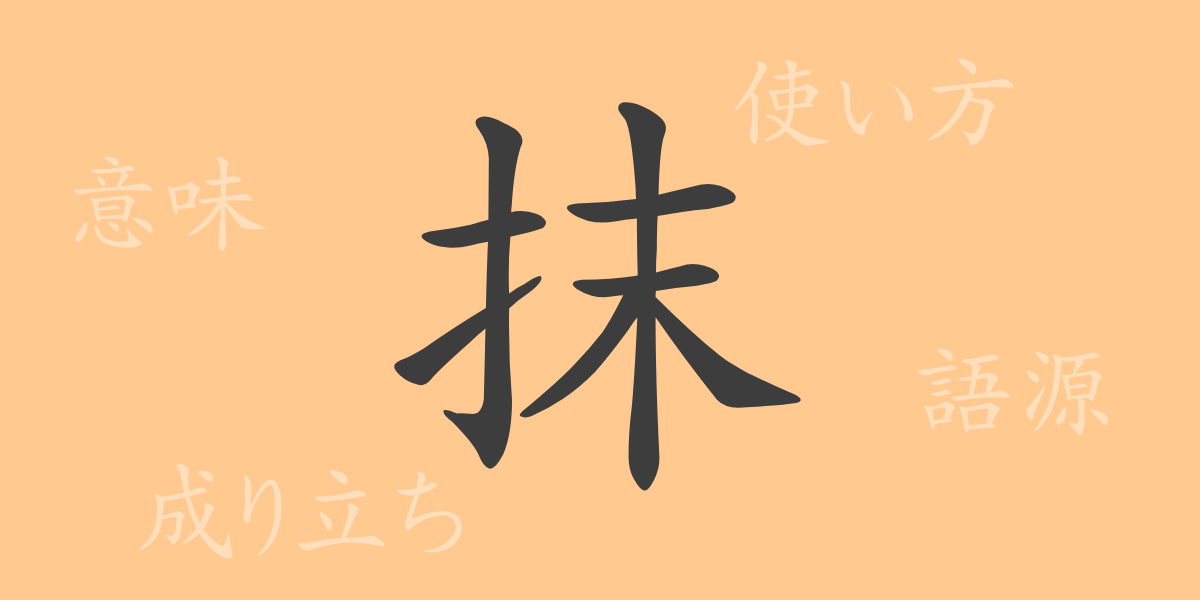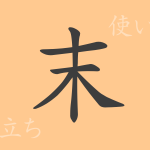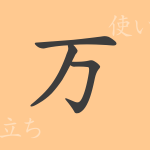Each character in the Japanese language carries its own unique history and meaning. One of the commonly used kanji characters in daily life is “抹” (matsu). However, opportunities to deeply understand its origin and specific usage may be rare. In this article, we will delve into the origins of “抹” (matsu), its meaning, usage, pronunciation, stroke count, and radicals. Additionally, we will explore idiomatic expressions, phrases, and proverbs that incorporate “抹” (matsu), uncovering the rich world of expression this kanji character offers.
The Origin of “抹” (matsu)
The kanji “抹” (matsu) is composed of “扌” (tehen), meaning hand, and “末” (matsu), which represents sound. “末” (matsu) originally means the tip or end of a tree, signifying the end of time or things, and later came to mean “to end” or “to erase.” The combination of these two elements gives rise to meanings such as “to rub out with a hand” or “to erase,” indicating that the kanji “抹” (matsu) includes actions like erasing or covering up.
The Meaning and Usage of “抹” (matsu)
“抹” (matsu) is primarily used to mean “to rub,” “to paint,” or “to erase.” Specifically, it is often used in forms like “抹消” (masshou), meaning “to erase records,” or “抹茶” (matcha), referring to “finely ground powdered green tea leaves.” In the compound word “抹殺” (massatsu), it conveys the nuance of “completely erasing” or “ignoring.”
Pronunciation, Stroke Count, and Radical of “抹” (matsu)
The kanji “抹” (matsu) has several pronunciations in Japanese, with the most common being the on’yomi (音読み) reading “まつ” (matsu). There is no kun’yomi (訓読み) reading.
- Pronunciation: On’yomi – まつ (matsu), Kun’yomi – none
- Stroke count: 8 strokes
- Radical: 扌 (tehen)
Idiomatic Expressions, Phrases, and Proverbs Using “抹” (matsu) and Their Meanings
Idiomatic expressions, phrases, and proverbs that include “抹” (matsu) often reflect the meanings associated with this kanji character. In addition to “抹茶” (matcha) and “抹消” (masshou), there are terms like “抹殺” (massatsu) and “抹斬” (massan, meaning to resolutely deny). These expressions are used to convey powerful actions such as erasing something or completely ending it.
Summary of “抹” (matsu)
The kanji “抹” (matsu) is associated with actions like erasing or covering up and is used in various forms in the Japanese language. By examining this single kanji, one can appreciate the depth and richness of Japanese expressions. Understanding idiomatic expressions and phrases that include “抹” (matsu) can deepen one’s comprehension of Japanese and enhance expressive abilities.

























